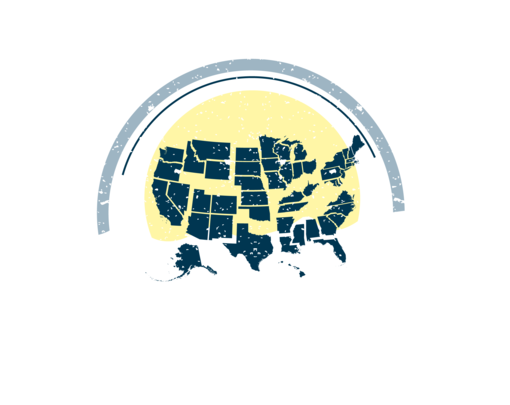Why is equality a key part of the Pluralist Commonwealth?
After the Great Recession, Occupy Wall Street, Thomas Piketty’s bestseller Capital in the Twenty-First Century, and Bernie Sander’s campaign for President, the facts of inequality are well known. “With a combined worth of $2.34 trillion,” writes the Institute for Policy Studies’ Chuck Collins and Josh Hoxie, “the Forbes 400 own more wealth than the bottom 61 percent of the country combined, a staggering 194 million people.”1 From 2009 to 2014, 58 percent of all new income went to the top 1 percent.2
The traditional means of addressing inequality focuses on redistribution. The economic system is left to produce whatever outcomes it may, and then taxes and transfers are utilized to attempt to alter the after-market distribution of income. Examples include progressive taxation, the provision of public goods, and programs like Social Security. While all of the aforementioned means of ameliorating inequality are certainly commendable, there is one thing that they, by and large, fail to do: alter the underlying power relationships that structure our political and economic systems. More recently, there has been some discussion of influencing the pre-distribution of income and wealth, by “rewriting” the laws and regulations that determine market outcomes. Such approaches can focus on corporate governance regulations, intellectual property regimes, or minimum wage laws. These changes more directly influence the power relationships that condition one’s day-to-day existence. However, they remain vulnerable to future legal, legislative, and regulatory changes. As the dire statistics of poverty and growing inequality demonstrate, traditional approaches—important as they are absent any other options—have also not moved America in the direction of greater equality. Indeed, since the mid-1970s, they have failed to alter the trend towards greater inequality.3 And while the recently devised Supplemental Poverty Measure (which includes the impact of taxes and transfers) has shown an absolute decline in the poverty rate by almost 10 percentage points from 1967 to 2012, the 2012 rate was still 16 percent meaning that more than 50 million people remained in poverty at that time.4
In addition, it must be emphasized that the burdens of inequality are not distributed equally (See RACE). The racial wealth gap, the GENDER pay gap, the gay-straight pay gap, and the disproportionate representation of LGBTQ youth among the homeless population are only the most obvious examples of how otherwise marginalized communities are disproportionately affected by inequality—and how inequality is itself a multidimensional and intersectional phenomenon.
How is movement towards equality achieved in the Pluralist Commonwealth?
The decline of labor unions has only increased the importance of focusing on underlying power dynamics. Reduced unionization has meant the attenuation of one of the primary forces operating (both directly and indirectly through politics) in opposition to concentrated corporate power. In the new context of radically reduced labor union power, a fundamental, long-term Pluralist Commonwealth approach to promoting equality and changing the underlying power relationships that maintain the status quo is to slowly but steadily transform the existing pattern of OWNERSHIP and the very institutions that provide the material basis for political influence.
Equality is promoted through six different channels in the Pluralist Commonwealth. First, altering ownership directly impacts the unequal distribution of both income and wealth. Second, the strategy of EVOLUTIONARY RECONSTRUCTION AND DISPLACEMENT and democratizing the ownership of wealth steadily moves to distribute economic and political power more evenly throughout society. In addition to directly impacting inequality, the goal is to slowly provide an institutional power base for countervailing initiatives like traditional tax and transfer policies, while at the same time eroding the concentrated power of corporate entities whose interests are served by a broad range of other policies (most obviously, for instance, global trade regimes that undermine American workers and communities). Third, alternative economic institutions reduce inequality within institutions. Worker COOPERATIVES, public enterprises like the TVA, Amtrak, or the Bank of South Dakota, and many nonprofits have far, far more compressed and egalitarian wage structures than their corporate counterparts.5
Fourth, the Pluralist Commonwealth model acknowledges that we already plan. To be sure, many of the previously mentioned regulatory measures can be seen as indirect or covert PLANNING mechanisms. However, far too often, contemporary planning supports a hierarchical, corporate-dominated economy that reproduces inequality in its basic institutional structure. Instead, the Pluralist Commonwealth plans intentionally for equality throughout the system while simultaneously promoting the economic stability that is necessary for communities to enjoy the economic and democratic security needed to build the institutional basis of a more egalitarian politics. Cities that are struggling to stay afloat economically are constrained in their ability to respond to the democratic demands of their citizens, much less promote equality. Fifth, the Pluralist Commonwealth also emphasizes the role of institutions in fostering specific values. Unless a culture of COMMUNITY, democratic cooperation, and equality is woven into the institutional fabric that produces the lived experiences and identities of individuals, then necessary reforms, such as reparations for the historic plundering of communities of color, have little likelihood of success. Finally, sixth, the Pluralist Commonwealth is based on an entirely different approach to TRADE, one that refuses to sacrifice the economic security of American families to the interests of global corporations.
In addition, the Pluralist Commonwealth also recognizes the specific ways that racial justice and equality are mutually reinforcing. More specifically, racial justice is an urgent and necessary precondition for achieving equality. Racial divisions, for instance, have long played a role in weakening the U.S. labor movement both in the South and nationally, thereby not only undermining wages at all levels but also weakening the “countervailing” institutional power that once was central to traditional progressive political strategies. The Pluralist Commonwealth also seeks to dismantle and diffuse the concentrated economic power that has historically utilized the state to institutionalize racially discriminatory public policies. For example, Southern interests who benefited from the prevailing low-wage economy pressed for occupational requirements for Social Security benefits that initially excluded large swaths of the African American population.
What examples prefigure equality as envisioned in the Pluralist Commonwealth?
Within the Black community, the relationship between racial justice, equality, and the building of democratized economic institutions has been explored extensively by Jessica Gordon Nembhard. In her book, Collective Courage, Nembhard describes how prominent African American figures like W.E.B. DuBois, Ella Jo Baker, Fannie Lou Hamer, and John Lewis advocated for cooperative economic institutions. Nembhard also surveys the countless examples they built, from the hundreds of cooperatives organized by the racially integrated union, the Knights of Labor, in the late 19th century, to Baker’s Young Negroes’ Co-operative League in the 1930s, to the Federation of Southern Cooperatives today. Another contemporary example is that of Cooperation Jackson, which is seeking to build a coop incubator, training center, bank, and network of worker cooperatives in Jackson, Mississippi to combat the staggering unemployment and racial inequality that afflict the city.
See also:
COMMUNITY, COOPERATIVES, EVOLUTIONARY RECONSTRUCTION AND DISPLACEMENT, GENDER, OWNERSHIP, PLANNING, RACE, TRADE
Further reading
Jessica Gordon Nembhard, Collective Courage: A History of African American Cooperative Economic Thought and Practice (University Park, PA: Pennsylvania State University Press, 2014).
Thomas Piketty, Capital in the Twenty-First Century (Cambridge, MA: Harvard University Press, 2014).
- 1Chuck Collins and Josh Hoxie, Billionaire Bonanza Report: The Forbes 400…and the Rest of Us (Washington, DC: Institute for Policy Studies, 2015), 3, accessed October 31, 2016.
- 2Emmanuel Saez, “Striking it Richer: The Evolution of Top Incomes in the United States,” Pathways Magazine, 2015 [2008], updated June 25, 2015, accessed November 4, 2016.
- 3Anthony Atkinson, Thomas Piketty, and Emmanuel Saez, “Top Incomes in the Long Run of History,” Journal of Economic Literature 49 (2011): 33.
- 4The Council of Economic Advisors, The War on Poverty 50 Years Later: A Progress Report (Washington, DC: Executive Office of the President of the United States, January 2014), accessed November 4, 2016.
- 5Regarding worker cooperatives, see:Gabriel Burdín and Andrés Dean, “New Evidence on Wages and Employment in Worker Cooperatives Compared with Capitalist Firms,” Journal of Comparative Economics, no. 37 (2009); Laura Leete, “Wage equity and employee motivation in non-profit and for-profit organizations,” Journal of Economic Behavior & Organization, 43 (2000); for non-profits, see: Laura Leete, “Wage equity and employee motivation in non-profit and for-profit organizations,” Journal of Economic Behavior & Organization, 43 (2000).





























